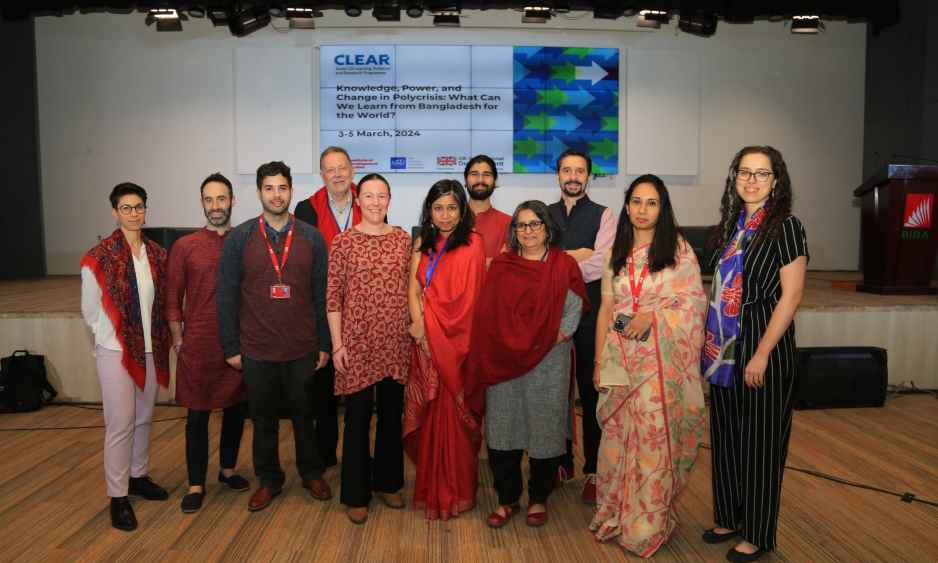
The Covid-19 pandemic led to a significant increase in poverty in Bangladesh, pushing formerly non-poor households into poverty, reveals a series of research projects conducted by the Covid-19 Learning, Evidence and Research Programme (CLEAR), a consortium of research organizations working in Bangladesh. The finding was part of emerging evidence from the CLEAR programme discussed at a conference on Knowledge, Power, and Change in Polycrisis: What Can We Learn from Bangladesh for the World, funded by the Foreign, Commonwealth and Development Office of the UK government and organized jointly by CLEAR, BRAC Institute of Governance and Development (BIGD), Brac University, and the Institute of Development Studies (IDS), University of Sussex from 3-5 March 2024 Dhaka, Bangladesh.
In the opening ceremony of the conference, speakers spoke of the challenges, particularly the worsened socioeconomic inequalities, and also stressed on the lessons that can be learned from Bangladesh’s experience in living through a polycrisis such as the pandemic. Pro Vice-Chancellor and Acting Vice-Chancellor of Brac University, Professor Syed Mahfuzul Aziz, recognized Bangladesh’s relative success in managing mortality during the pandemic while acknowledging socioeconomic challenges such a poverty and the digital divide. “I believe that allocating resources to better prepare us for future crises could actually be instrumental in more effectively tackling their negative effects. This is where research as the ones conducted by CLEAR are so important. Lessons from this conference will show how knowledge and evidence from the local community can enrich the global community,” he said. Dr. Sohela Nazneen, Senior Research Fellow at the Institute of Development Studies and Research Lead for the CLEAR, highlighted the programme’s collaborative nature and its key objectives. “Crises push the boundaries of what we know and what we can learn. CLEAR was established as a co-constructed and co-developed program. This approach underscores our commitment to inclusive research and knowledge generation,” she said. While emphasizing the urgency of learning from crises, Dr. Imran Matin, Executive Director, BIGD stressed upon the immediate value of research at critical junctures, explaining that research needs to look into a crisis’ socioeconomic and sociopolitical impacts on communities and highlighted the importance of translating knowledge into action. “Knowledge matters if we actually take the power dimension into the knowledge perspective,” he added. The CLEAR programme study also found that households resorted to various coping mechanisms to mitigate the economic impact. Prolonged school closures exacerbated educational challenges, and uneven access to social protection and the psychosocial toll of poverty that pose additional barriers to recovery efforts.
The conference will focus on building a future knowledge agenda for Bangladesh that connects local concerns to global priorities and debates in development as well as draw on the work of CLEAR grantees to see how these connect to global debates on increasing inequality, inclusive institutions, digital innovations, knowledge hierarchies, and partnerships



